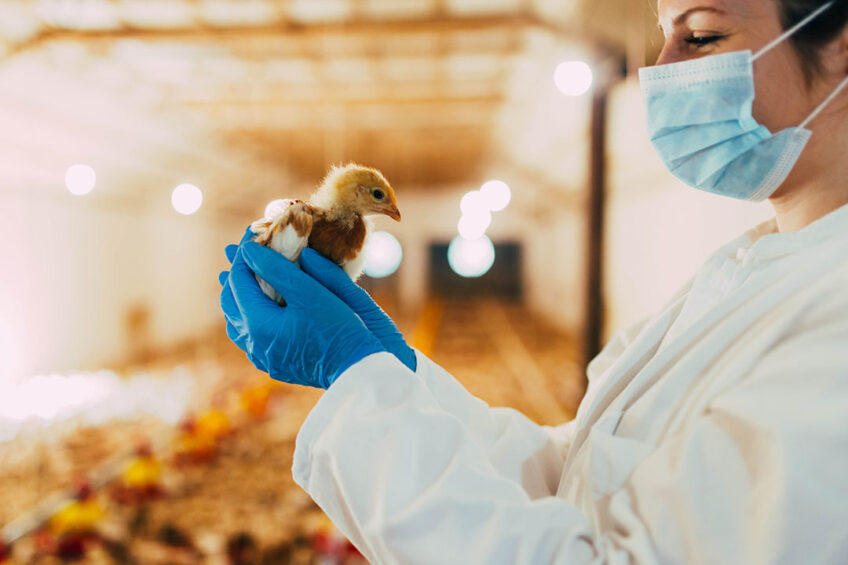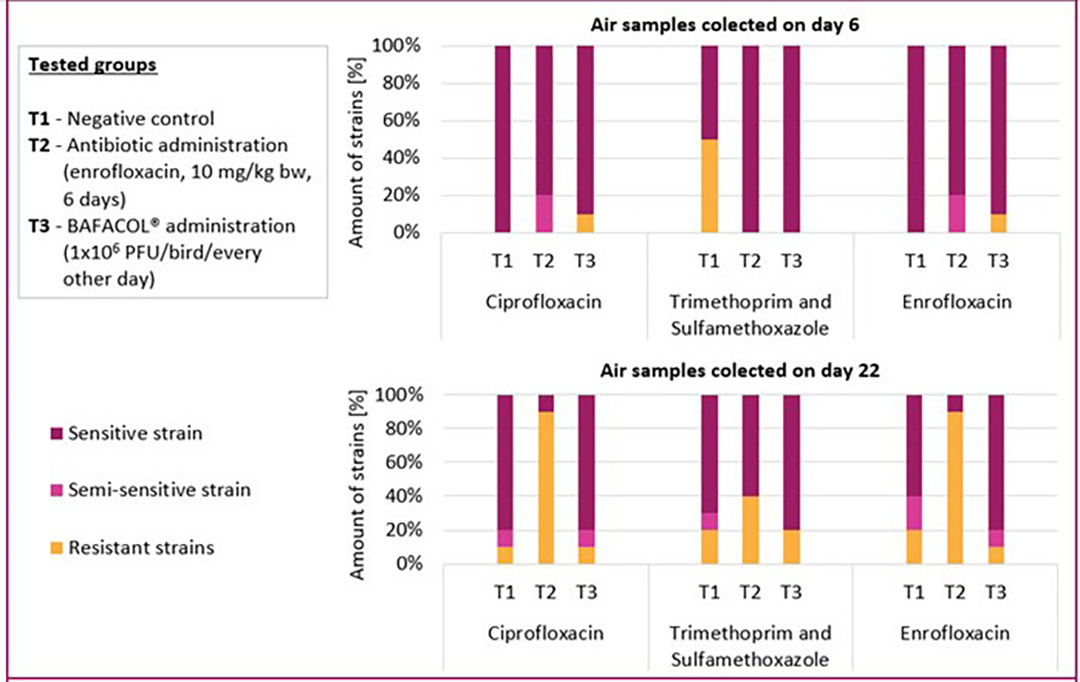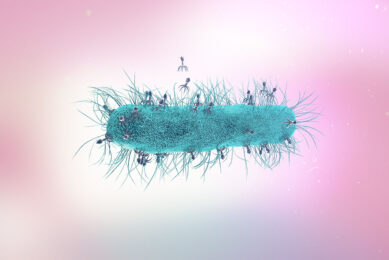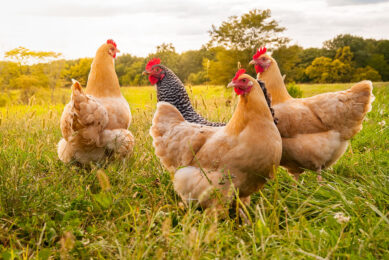The role of bacteriophages in the prevention of airborne bacteria

The use of antibiotics, though often effective, is associated with the emergence of resistance among bacteria. Antibiotic-resistant E.coli is a ubiquitous bacteria that can be spread through faeces, water, or food but can also be carried by the air. However, an effective countermeasure could be the employment of bacteriophages.
Despite increased awareness of the threats associated with inappropriate antibiotic use, and the implementation of measures to reduce their consumption on poultry farms, antibiotic resistance is rapidly growing, outpacing the rate at which new antibiotics can be brought to the market. However, a promising solution, known as bacteriophages (phages), is gaining attention as an alternative to prevent bacterial infections. Phages are bacterial viruses that are present in every environment inhabited by bacteria, including the human microbiota.
Colibacillosis
Avian colibacillosis is a significant concern in the poultry industry. It is primarily attributed to avian pathogenic Escherichia coli (APEC) and affects birds of all ages and across various poultry production types. APEC can be found in the intestinal tract of birds as well as in the environment and it seizes the opportunity when birds’ immune defences weaken to colonise various tissues and organs. This disease can manifest in various ways, including sepsis, pericardial sac inflammation, air sac disease, fallopian tubes inflammation and peritoneum inflammation. Moreover, the majority of colibacillosis cases appear to be caused by E. coli that have acquired a number of virulence genes that can originate from various sources.
Environmental sources of resistance
A high percentage of veterinary antibiotics can pass through an animal’s digestive system undigested, ending up in manure. These antibiotics can then be transferred from manure to soil and water, where they come into contact with bacteria that can develop resistance to them. While feed may be devoid of live bacteria, it can be contaminated with bacterial DNA, i.e. from soil, that possess resistance genes. These genes can potentially be taken up by bacteria such as E. coli present in a bird’s gut or in the airborne environment of poultry farms. Once bacteria have acquired antibiotic resistance genes, they have the ability to share these genes among themselves, and even across different bacterial species.
Reduction of APEC in the air
Proteon Pharmaceuticals has developed a bacteriophage product – Bafacol which is dedicated to preventing avian pathogenic E. coli infections. Bacteriophages are a critical part of ecosystems across the planet that naturally control bacterial populations. Moreover, bacteriophages leave no residues, are non-toxic and biodegradable. The product effectively safeguards against substantial mortality rates and productivity setbacks while preserving the delicate birds’ microbiome, ultimately enhancing growth, productivity, and overall performance. It is suitable for application across various poultry species and breeds including chickens, turkeys, ducks, pigeons and other fowl.
In cooperation with the Institute of Animal Production in Chorzelów (Poland), an in vivo study of the effectiveness of Bafacol was conducted on broiler chickens. One of the criteria evaluated during the study was the quality of air in the poultry house, specifically focusing on the presence of avian pathogenic E. coli (APEC) resistant to antibiotics. There were 480 1-day-old broiler chicks placed in the facility and randomly divided into 3 equal groups of 160 birds in each:
· T1 – Negative control,
· T2 – Antibiotic administration (enrofloxacin, 10 mg/kg body weight, 6 days),
· T3 – Bafacol administration (1×106 PFU/bird/every other day).
The study lasted 36 days. Bafacol and an antibiotic were administered into the water separately. The product was administered every other day throughout the rearing period, and the enrofloxacin was administered for 6 days, from the 8th to the 13th day of rearing.
Air samples were collected before and after antibiotic administration for APEC strains detection (on the 6th and 22nd day). Then, the antibiotic resistance of isolated strains was assessed. Results are presented in Figure 1.
Figure 1 – APEC strains in the air samples collected on different days and their resistance to various antibiotics.


The obtained results show that only on day 22 of the experiment, after administering the antibiotic to the birds, significantly more resistant bacteria appeared in the environment, compared to samples taken on day 6. Furthermore, in group T2, where an antibiotic (enrofloxacin) was administered, the level of AMR strains was the highest among the groups examined. Essentially, the group in which the bacteriophage preparation was administered shows a significantly lower level of AMR, which is comparable to the negative control group.
Summary
Bafacol administration does not exacerbate the AMR level in broilers unlike the antibiotic (enrofloxacin). It also allows for a reduction in the use of antibiotics, and thus does not exacerbate the spread of resistance genes in the environment.
Bacteriophages as an innovative feed additive
Products developed by Proteon Pharmaceuticals S.A. are innovative preparations containing bacteriophages, dedicated for the animal production sector. Our solutions help reduce the unnecessary use of antibiotics in the food chain and improve animal and human health.





